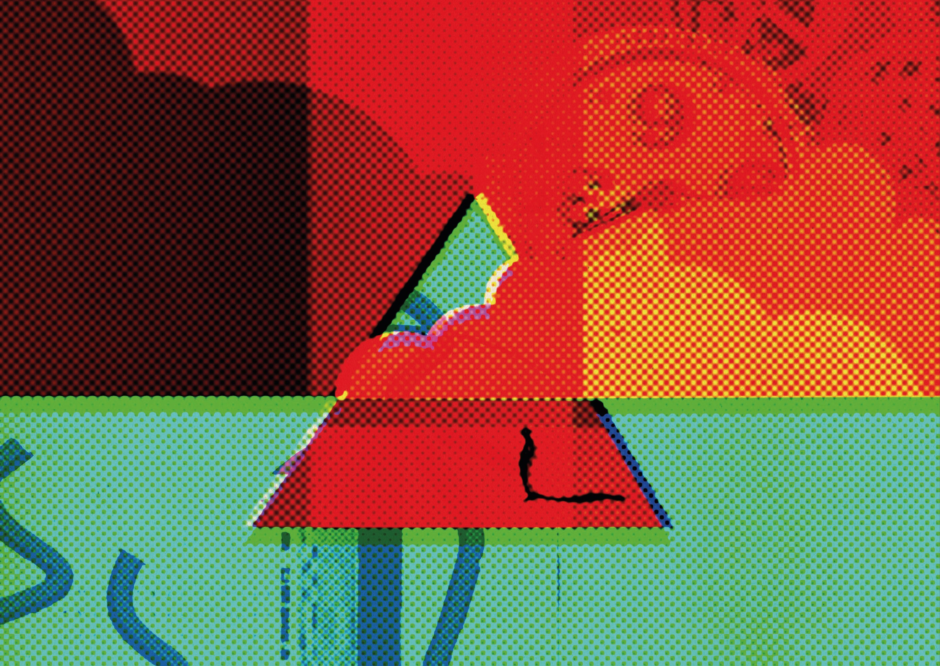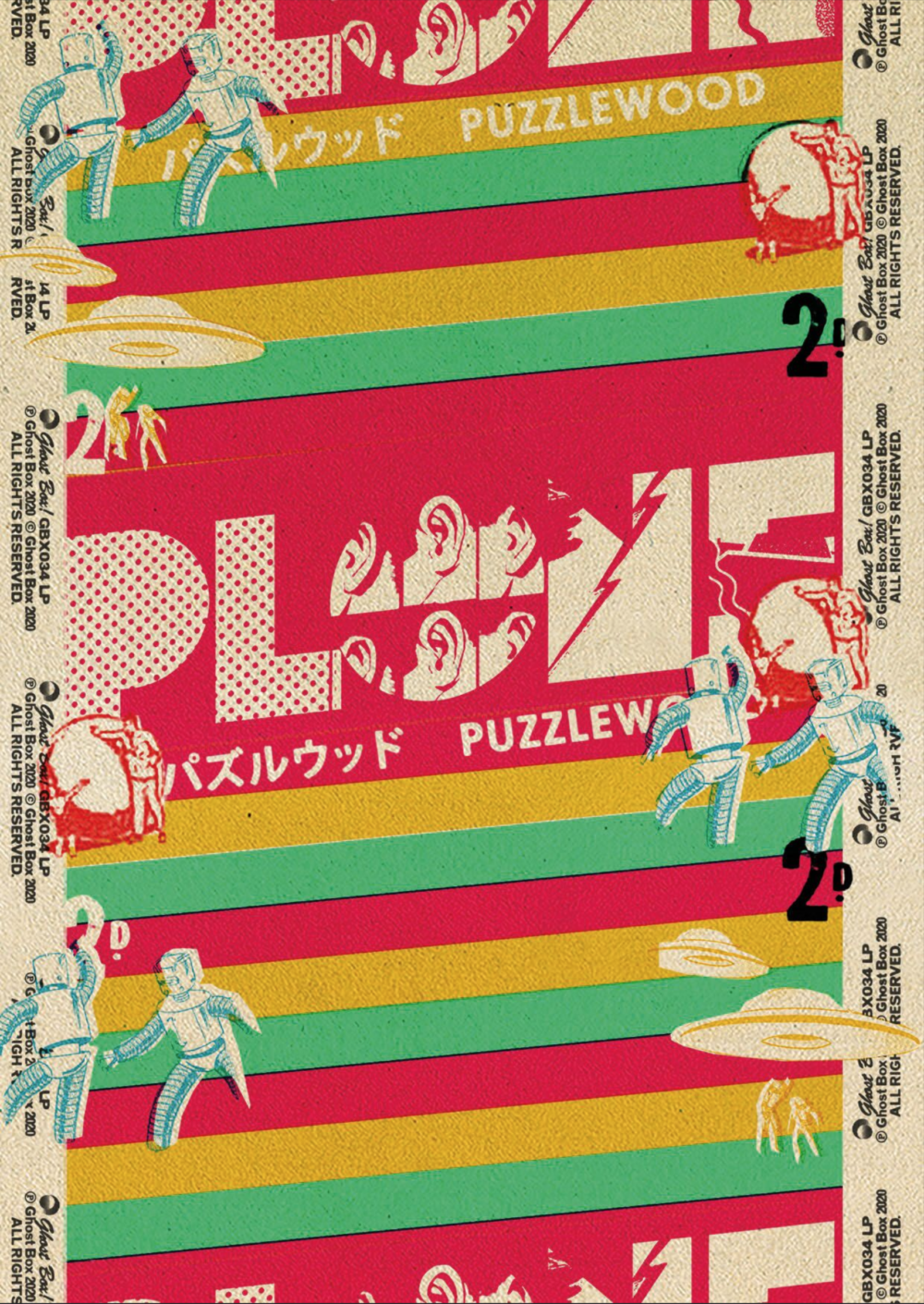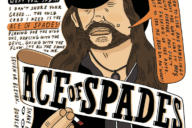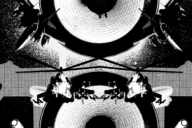PUZZLEWOOD: CLASSIC PLONE VIBES
Kids, listen up, your mum or dad might know this synth pop band from Birmingham called Plone. They last released an album at the end of the ‘90s – it was their debut album, called For Beginner Piano and it was a big deal in the world of electronic music. There was a second album, but for reasons nobody really wants to talk about, it never got released and it was a big shame because loads of people had been really looking forward to it.
The three band members, Mike Johnston, Billy Bainbridge and Mark Cancellara went their separate ways, making music with other bands and by themselves. Then last year the legendary Jim Jupp from Ghost Box Records happened to ask Billy if he’d ever consider releasing anything as Plone again. It turned out Billy and Mike had been collaborating as a duo on some decidedly Plone-like tracks for a while. A year later, in spring 2020, right in the middle of the Covid-19 lockdown, Plone’s third album, Puzzlewood, was released by Ghost Box, with some mighty fine graphic design by the also legendary Julian House, and everybody was happy to hear their music again. Maybe even some of you kids might like it – it sounds how the late 1970s and early ‘80s felt to many children back then.
The opening track Years and Elements wastes no time in whisking us right back to where Plone left us – playschool memories from a post-moon-landing, pre-D.A.R.Y.L. childhood. It could almost have been made by Paddy Kingsland or Delia Derbyshire of the Radiophonic Workshop half a century ago, though a delicious flash of 8-bit interference about half-way through the track gives us a fleeting insight into the extraordinary level of control over the production and composition that Plone has at its fingertips today. Miniature Magic boldly asserts the duo’s refusal to be bound to their signature style, however, leading us into a whimsical dub-like track with a jazzy muted trumpet that takes me back to magical miniature childhood radio and TV moments of my own with the likes of Musical Youth and Derek Griffiths. It’s a relaxed, breezy, dutchie-passing track that’s full of confidence, like they have nothing to prove. They’ve waited twenty years so I guess they might as well enjoy themselves.
The title track, Puzzlewood, offers classic Plone vibes and would not have been out of place on For Beginner Piano. It delivers carefree, sunny fun, like going to meet your friends in the park on your bike in the endless summer holidays with a brand-new pair of sweatbands on your wrists and cereal box spokey dokeys on your wheels. Maybe Mike and/or Billy were fortunate enough to get taken to the woodland adventure park of this name in the Forest of Dean when they were kids. The next track, Watson’s Telescope, involves more live instrumentation than I can ever recall in a Plone track – it could be the opening track of a film circa 1980 (maybe a Children’s Film Foundation film), the title only adding to its cinematic aspirations. While it’s hard to be entirely sure, violin, piano and drums all sound like they could be IRL; meanwhile the trumpet’s back and has brought its friends. The percussion too sounds convincingly real, all brought together by dreamy synths in a happy feel-good melody that bobs along quite merrily all the way to the end, tugging just a little on the heart strings as it goes.
Build a Small Fire is more like traditional synth pop, the vocoder making an appearance alongside some instantly appealing disco beats and pop melodies. This is the equivalent of comfort food for the ears for anyone who lived and loved the 1980s. Just imagine Morten Harkett’s heart-throbbing tones coming in over the top and you’ll get the feel of this track. I’m sure there are plenty of synth pop aficionados out there who can identify which vintage synth models the sounds are based on – I’m partly disappointed, partly relieved I can’t.
Next up, track 6: Red Kite. I can’t say I definitely didn’t burst into tears, Stendhal-syndrome style, the first time I heard this track, but I’m blaming lockdown for that. Honestly, it’s silly to say but it’s an utterly heart-breaking tune. Yes it’s unapologetically sentimental and unashamedly nostalgic to anyone of a certain age, and for some reason, I can’t get that public information TV advert warning of the dangers of flying a kite near a pylon out of my head (Play Safe – Kites and Planes) only without the terrifying child electrocution scene at the end. Red Kite is such a pretty and haunting tune, you might be forgiven for confusing it with an actual track from four decades ago. Was this one of my actual memories?
Something about the start of Day Trip reminds of the beautiful vocals of the much-missed Trish Keenan from Broadcast, a gentle, echoey passage that builds for over a minute before bursting into a poppy syncopated disco beat replete with funky guitar riff. I was half expecting Kool to turn up (with or without his gang) for a cameo, but it ends with a gorgeously immersive, euphoric and suitably wonky Boards of Canada-esque fade. From the sublime to the ridiculous, Just a Shadow opens with a Jew’s harp, crazy keyboard sounds that would undoubtedly have appealed to Noseybonk or Wizbit (maybe Puzzleopolis is near to Puzzlewood?), and a melody that sounds straight from a 70s TV game show. It’s followed by an upbeat ditty called Sunvale Run, which makes you want to put on your roller boots, some almost knee-length white socks and head out into the Californian sunshine.
Slowing the ride down for a while, the brilliantly titled The Model Village captures the oddly disconcerting experience of being taken to a model village as a child – maybe a day out while visiting the grandparents in some coastal retirement town. It’s a bossa nova beat, I think, with a pretty though slightly melancholic, wistful tune that lodges itself gently in the subconscious. Keeping this more subdued vibe going, Circler is a pensive, echo-drenched piece that you could quite easily drift off into a relaxing afternoon nap in the garden to before Chalk Stream and its catchy beat kicks in to get you back in the mood for a night out at the disco – maybe at the Rum Runner back in the day as this is pure, joyous, romantic synth pop.
Sarcelle starts off like the soundtrack to an arcade or early domestic computer game, then turns into a whacky ballad reminiscent of playful continental electronic music of yesteryear, such as by the likes of Jean-Jacques Perrey, Gershon Kingsley, Jean-Michel Jarre or Giorgio Moroder. Sticking its head out above the layers of rhythm, sound effects and vocal samples is a quirky quacking sound, which might go some way towards explaining the ornithological associations of the title of the track.
The last track comes too soon, but it is blissfully ingenious. Entitled Sweet Factory, it is indeed like two child prodigies have been let loose without parental supervision in an electronic sweet shop. Pumped up on e-numbers and sugar, the duo go a bit manic, resulting in a frenetic, dizzying extravaganza of bleeps, bings, pings, whistles and bells – not to mention flying saucers. It’s a showcase of the skill and virtuosity Plone were known for when first launched into the hallowed hall of electronic music fame.
Puzzlewood is an exquisite, thoroughly joyful album – it’s fun and funny, sometimes a bit silly, unreservedly childish, nostalgic and sentimental, and while there are moments of melancholy, it’s considerably brighter, lighter and bubblier than For Beginner Piano. As a fan since I first met Plone standing at the foot of the stairs in The Jug of Ale in Moseley in the suburbs of Birmingham some twenty or so years ago, listening to Broadcast do their sound check ahead of their gig there later that evening, I am definitely too biased to be able to give this new album an impartial review, though as a self-professed fan, I’m delighted to say what many people in a similar position have perhaps been hoping to hear – Puzzlewood has been well worth the agonisingly long wait and is a fabulous follow-up album that will undoubtedly put a spring in your Dunlop green-flashed step.
Matt Price









